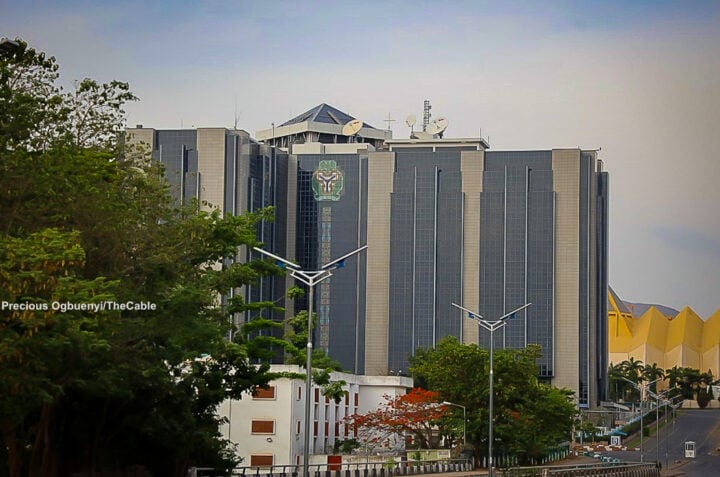Fraud remains one of the most significant challenges facing the financial industry today. It spans various sectors, from banking to fintech, insurance, and capital markets, with ever-evolving tactics. This issue has been a repeated theme across most of the annual general meetings of banks attended over the last few weeks, reflecting its growing prominence as an issue of concern for the sector. Financial fraud worldwide has led to staggering losses, with the most recent reports showing a global fraud cost of over $485 billion in 2023. This represents a sharp rise in financial crime, driven by both the increasing digitalisation of financial services and the sophistication of fraudsters. As the world continues to embrace digital financial solutions, the need for heightened security becomes ever more pressing. Institutions worldwide are responding by significantly ramping up their investment in fraud prevention technologies, adopting new strategies to fight back against this growing threat.
The issue of fraud in the banking sector is particularly significant. In many regions, especially in developed markets, traditional fraud methods like cheque fraud and internal theft are being replaced or complemented by high-tech schemes, such as account takeovers, synthetic identity fraud, and, increasingly, cybercrime. For example, payment card fraud alone accounted for over $33 billion in losses. Similarly, identity theft and impersonation scams continue to plague banks, with fraudulent activities often linked to high-value and complex schemes that require advanced technical means to detect and prevent. In response to these growing threats, major financial institutions are investing heavily in technology to enhance their fraud detection capabilities and secure their systems.
JPMorgan Chase, one of the largest and most influential banks in the world, exemplifies the aggressive stance many banks are taking in their fight against fraud. In 2024, JPMorgan’s technology budget surged to an unprecedented $17 billion, reflecting a critical focus on cybersecurity and fraud prevention. This increase was not just a reaction to rising fraud incidents, but also part of a broader strategy to stay ahead of increasingly sophisticated cybercriminals. JPMorgan’s efforts include AI-powered fraud monitoring systems, biometric verification for customer transactions, and advanced data analytics designed to identify and respond to threats in real time. The bank’s leadership has stated that AI plays an essential role in fraud detection, with the technology allowing them to analyse large volumes of transaction data and identify patterns of suspicious activity that might otherwise go undetected.
This focus on technological advancement is not unique to JPMorgan; it is a trend that has become increasingly prevalent across the financial industry globally. Banks and other financial institutions are realising that the best defence against fraud is to invest in cutting-edge technology that enables them to monitor transactions 24/7, identify emerging fraud schemes, and implement proactive measures to protect customers and assets. In fact, more than half of financial institutions have reported increasing their investments in fraud prevention tools, including machine learning and AI algorithms, to enhance their fraud detection capabilities. These technologies allow banks to analyse transaction data in real-time, making it possible to block fraudulent transactions as they occur and even predict potential fraud before it happens.
Advertisement
However, the challenge of fraud is not limited to just the biggest players in the global financial system. As financial services become more accessible, fraud has begun to impact emerging markets, especially in Africa, where digital banking is growing at an unprecedented rate. The increase in mobile banking and mobile money services has led to an explosion of fraud attempts, as fraudsters exploit gaps in security protocols to defraud users and institutions. African countries, like Nigeria, South Africa, and Kenya, are seeing rising fraud rates as fintech and mobile money services proliferate, and as a result, financial institutions are making significant investments in cybersecurity and fraud prevention.
In Africa, the rapid growth of mobile banking has been a double-edged sword. On one hand, it has provided financial inclusion to millions of people, who previously had little or no access to banking services. On the other hand, it has opened new avenues for criminals to exploit vulnerable customers. According to reports from the Nigeria Inter-Bank Settlement System (NIBSS), fraud incidents in Nigeria surged by 112% from 2019 to 2023, with the total value of fraud losses escalating by about 500%. Much of this increase can be attributed to the rise in mobile and online banking, where fraudsters are exploiting weaknesses in security systems to gain access to accounts and steal money. In response, Nigerian banks are stepping up their efforts to combat fraud by implementing advanced fraud detection systems and using biometrics for customer verification.
One of the standout examples of a financial institution successfully tackling fraud in Nigeria is Access Holdings Plc, the parent company of Access Bank. In 2024, the company allocated a record ₦193.5 billion ($120.5 million) to technology investments, marking a significant 147% increase from 2023. This surge in technology spending, which was the highest in Nigeria’s banking sector, was driven by the bank’s commitment to strengthening its digital infrastructure and cybersecurity capabilities. The investment helped the institution enhance its fraud prevention tools, leading to a dramatic 73% reduction in fraud losses, from ₦6.15 billion ($3.8 million) in 2023 to ₦1.64 billion ($1.0 million) in 2024. This success could be attributed to the bank’s proactive investments in new technology, including core banking software upgrades and enhanced cybersecurity systems.
Advertisement
The impressive drop in fraud losses at Access Bank is not a one-off occurrence in Nigeria. Other major Nigerian financial institutions, such as GTCO, Zenith Bank, and UBA, are also ramping up their tech spending and fraud prevention efforts. In 2024, GTCO spent ₦88 billion ($56.8 million) on technology, representing 48% increase from the previous year, while Zenith Bank doubled its tech budget to ₦67.3 billion ($43 million). UBA, too, grew its technology spending by 107% to ₦48 billion ($30.5 million). Despite these efforts, the results have been mixed. While GTCO saw a slight reduction in fraud losses, Zenith Bank experienced a dramatic increase in fraud losses, from ₦383.4 million ($238,914) to ₦5.26 billion ($3.3 million). This highlights that while investments in technology can significantly reduce fraud losses, they must be complemented by continuous vigilance, staff training, and effective implementation to yield long-term results.
Table: Nigerian Banks’ Technology Spending vs. Fraud Losses (2024)
| Company | IT Spend 2024 | YoY IT Spend Increase | Fraud Losses 2024 | YoY Fraud Loss Change |
| Access Holdings (Access Bank) | ₦193.5 billion (≈$120.5 m) | +147% (sector-high) | ₦1.64 billion (≈$1.0 m) | -73% (down from ₦6.15 billion) |
| GTCO | ₦88 billion (≈$56.8 m) | +48% | ₦159 million (≈$0.10 m) | Slight decrease (from ₦198.8 m) |
| Zenith Bank | ₦67.3 billion (≈$43 m) | +100% | ₦5.26 billion (≈$3.3 m) | +1,272% (massive jump from ₦383 m) |
| UBA | ₦48 billion (≈$30.5 m) | +107% | ₦1.14 billion (≈$0.74 m) | n/a (baseline year in this data) |
Source: Company financial statements and industry reports
Advertisement
In Nigeria, the surge in technology spending comes as a response to the country’s broader digital transformation, where online banking, mobile payments, and digital lending are becoming mainstream. The financial sector in Nigeria is undergoing a rapid digitalisation process, and this has created new opportunities for fraudsters to exploit weak points in the system. However, the investments made by Nigerian banks in fraud prevention and cybersecurity are a sign that the industry is responding positively to the threat.
Nigeria’s financial institutions are investing in a variety of anti-fraud technologies, including biometric authentication, AI-powered fraud detection systems, real-time transaction monitoring, and cloud-based security platforms. These investments are enabling banks to monitor customer transactions in real-time, identify patterns of suspicious activity, and act before the fraud can escalate. Moreover, Nigerian banks are improving their customer verification processes, incorporating multi-factor authentication and using device fingerprinting and transaction pattern analysis to better detect and block fraudulent activity.
Despite the varying results across banks, the industry at large is making significant strides in reducing fraud losses by leveraging technology. As Nigerian banks continue to invest heavily in fraud prevention systems, the hope is that the industry will continue to see reductions in fraud incidents and losses. However, it is clear that the road ahead remains challenging, as criminals continue to innovate and adapt their methods. Nonetheless, the Nigerian banking sector’s aggressive stance on technology investment and fraud prevention provides a solid foundation for the future.
Indeed, the fight against fraud in the financial industry is a global battle, and the responses from institutions worldwide are becoming more robust. The case of Access Holdings in Nigeria is a prime example of how strategic investments can lead to significant reductions in fraud losses, and this success story offers valuable lessons for other institutions looking to bolster their fraud prevention efforts. The rise of digital banking, while creating new opportunities for financial inclusion, has also presented new challenges, but as the industry continues to innovate and adapt, it is becoming increasingly difficult for fraudsters to keep up. The financial sector’s investment in technology, AI, and biometrics goes beyond just protecting profits, but also extends to preserving customer trust, a crucial factor in the ongoing digital transformation of the financial industry.
Advertisement










